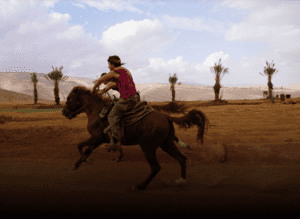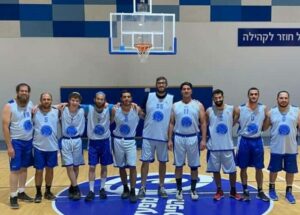“And the LORD spoke unto Moses, saying: Howbeit on the tenth day of this seventh month is the day of atonement; there shall be a holy convocation unto you, and ye shall afflict your souls… And ye shall do no manner of work in that same day; for it is a day of atonement, to make atonement for you before the Lord your God… It shall be unto you a sabbath of solemn rest, and ye shall afflict your souls; in the ninth day of the month at even, from even unto even, shall ye keep your sabbath.” (Leviticus 23: 26-32)
On the 10th of the Jewish month of Tishrei, this year on the 19th of September, the Jewish people commemorate Yom Kippur. From sundown on September 18th until nightfall on September 19th, we have a special day of fasting, prayer, and atoning for our sins, beseeching God to seal us in the Book of Life. We say a special prayer called “Unetaneh Tokef,” in which we chant, “On Rosh Hashana it is written, and on Yom Kippur it is sealed.” We just celebrated Rosh Hashana, where we reanointed God as our king, celebrated the creation of the world, and prayed for forgiveness for our sins. Ten days later, we have Yom Kippur.
In contrast to Rosh Hashana, Yom Kippur is a more somber, serious day. The ten days between Rosh Hashana and Yom Kippur are known as the Ten Days of Repentance. We say special prayers, give charity, and apologize to those we have wronged in the past (because how can God forgive us for our sins if we have not yet asked for forgiveness from our fellow man?). We believe that “repentance, prayer, and charity avert the severity of the decree.” We recognize our sins and promise not to do them again. We pray to God, developing our relationships with Him, and asking Him for blessings in the upcoming year. We give charity, a custom called Kapparot. Some people perform Kapparot with a chicken, who is meant to “take our sins.” The chicken is slaughtered and donated to feed the hungry. Some people opt to perform the Kapparot ceremony with money instead, which is then donated to charity. It is important to remember to care for others less fortunate than us, even during a period where we are so focused on our own fate.
On this holiest day of the year, we “afflict our souls.” Traditionally, that means that we do not eat or drink, we do not bathe or wear perfume or makeup, we do not wear leather shoes, and we abstain from marital relations. We spend the day in synagogue praying. The most important mitzvah of the day is fasting, even if it means you need to stay in bed all day instead of praying.
Many people have the tradition to wear white, in order to resemble angels. In addition to wearing white, we refrain from wearing gold. In Judaism, we have a saying, “A prosecutor cannot become an advocate.” We do not wear gold so as not to remind God of one of the greatest sins of the Jewish people, the Sin of the Golden Calf. Historically, after the Jewish people performed the Sin of the Golden Calf, Moses went back up Mount Sinai to pray for forgiveness for the nation. Moses had two periods of 40 days of praying on the mountain before the nation was finally forgiven. The day that God decided to forgive the people was the 10th of Tishrei, Yom Kippur. In the Tabernacle and then in the Holy Temple, the High Priest would perform special ceremonies and sacrifices on Yom Kippur. We no longer have a temple or perform these ceremonies, but we remember them during the Mussaf prayer on Yom Kippur. Although the High Priest normally wore ornate clothing, on Yom Kippur he would immerse in the mikvah and don plain, white clothing.
At The Heart of Israel, we wish you an easy and meaningful Yom Kippur. May God answer your prayers, and may we all be sealed in the Book of Life!




